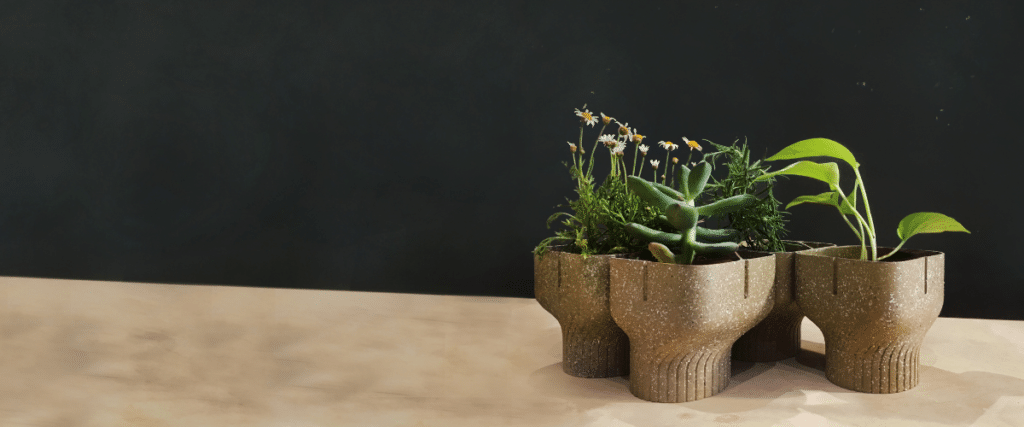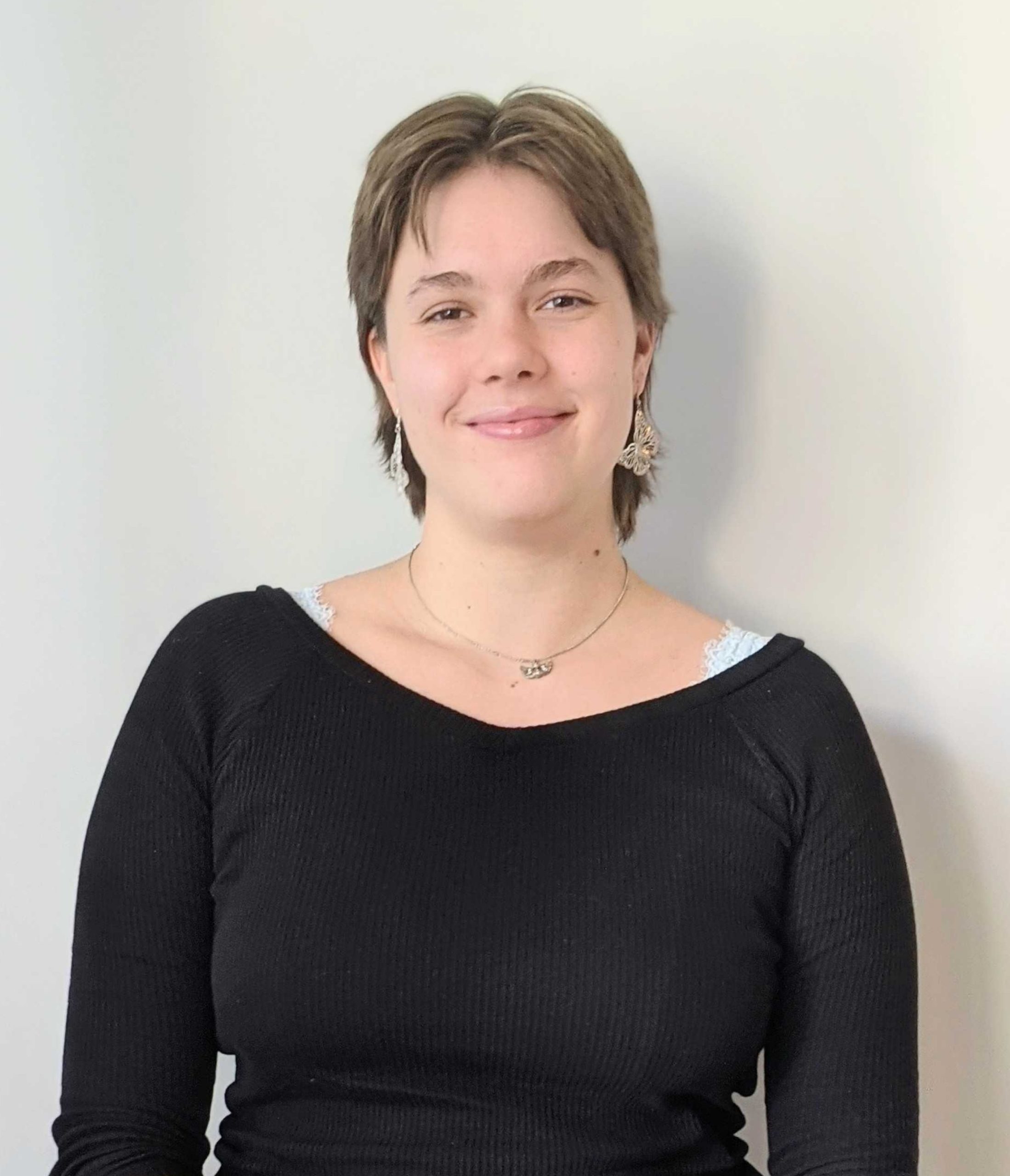Hive Life spoke with Chen-Hsiang Chao, the Co-founder and Chief Designer at Bionicraft, a biolab based in Taipei, working on developing sustainable and innovative solutions for food waste.
Chen-Hsiang Chao is the co-founder and Chief Designer at Bionicraft, a biolab, research and development (R&D), and design studio based in Taipei. The company is dedicated to exploring innovative solutions to conservation via biological and environmental research to develop bionic products that target food waste upcycling.
Since our last catchup with Bionicraft, the company has moved on to bigger projects, such as “The Capsule Project ” for Nespresso, that entailed the creation of hundreds of plant pots made from their coffee grounds. All the while, the company has been scaling the reach of their popular products like the Biovessel and Alphapot. Chen-Hsiang gives us deeper insights into the ways in which Bionicraft is tackling the issue of food waste with eco-integrated system solutions and environmental spatial design.
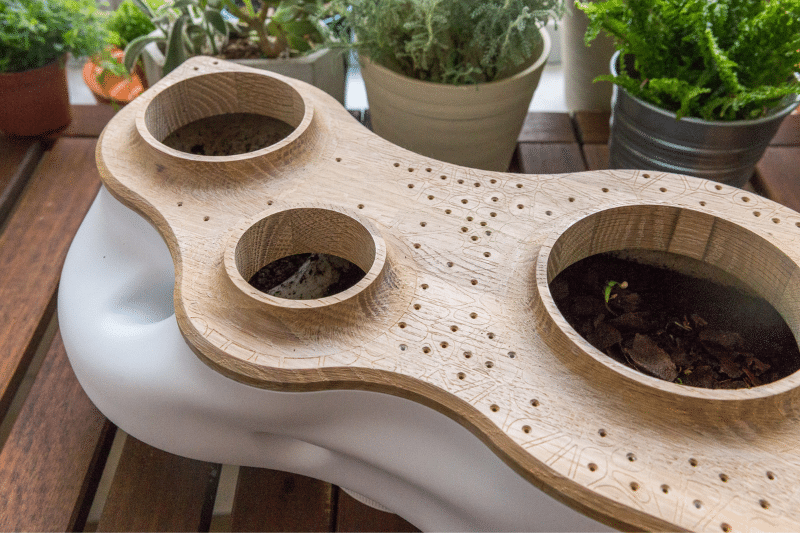
Can you tell us about Bionicraft’s concept?
We are a cross-disciplinary biolab and research and development studio. We are dedicated to biological and environmental research, conservation, and innovation. Recently, we’ve been known for upcycling food waste and innovative solutions to raise awareness for this issue. In addition, we are a design-based studio. We have been applying our design thinking, not only to products and materials, but also spatial environmental design.
What is the importance of interdisciplinary research and how does it apply to Bionicraft?
It is the core of our studio. The composition of our team is interdisciplinary – for instance, I’m trained as an architect. We have a landscape designer, we have biologists, we have product designers. We are constantly working with different researchers on projects. We work with recycling plants, institutions, material factories, and we also teach at the Royal College of Art in London so we have some academic research opportunities as well.
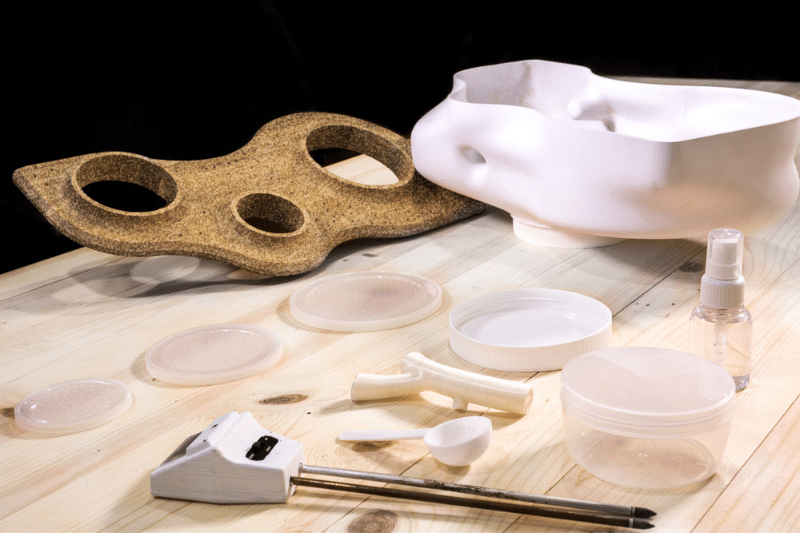
What does your research currently centre around?
Biology, material, and design. When designing the Biovessel, we did biology experiments to gather data. We explored questions like: What is the suitable environment for indoor composting? How many worms do we need for the product? What is their behaviour? And so forth. And then we put that data into several algorithms to generate the Biovessel.
We also do materials research. We collect all kinds of food waste, fruit peels, coffee grounds, and tea leaves from tea shops, or vegetables from the market. We have to test the proportion, the strength, and conduct all kinds of experiments to make sure that they are suitable for our product and design applications,
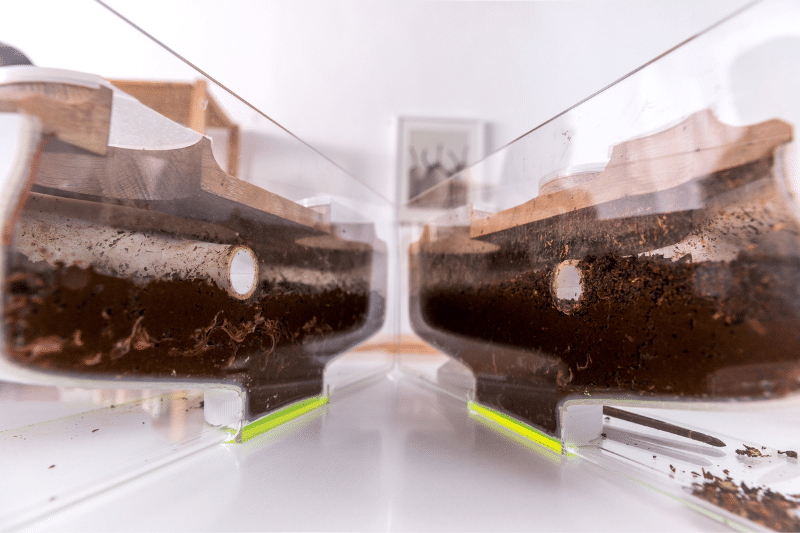
What do you hope to achieve at Bionicraft?
Basically, we want to raise awareness of the food waste problem by providing innovative solutions like upcycling. But more than that, food waste is only part of the problem in our environment. As an innovative design studio, we continue to challenge, define, and explore the possibility of design thinking.
What is a bionic product?
For us, a bionic product is something that we learn from nature through biology, observation, and experimentation with applied biological technologies in designing bionic products and developing eco-integrated solutions and environmental spatial design.
Considering your background as an architect, how does design come into play in your work?
I’m trained as an architect. I use advanced architectural design methods, for example, parametric design, to design not only our products, but also most of our spatial projects because it is very efficient. We can just collect the experiment data and then feed it into the algorithms we’ve written to generate the form, whether it is products or spatial.
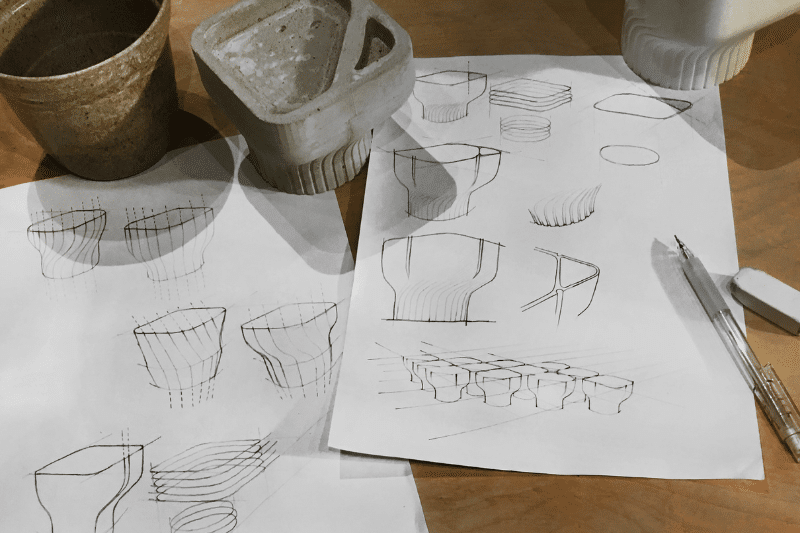
What kind of sustainable food waste solutions do you develop?
We have several products. The Biovessel is one of the most important. It is an indoor-use composter, and can be placed, for example, on the kitchen tabletop. You can feed it with up to 500g of food waste per day, and that food waste will be turned into fertiliser by the worms inside the Biovessel in just a couple of days.
Another product we developed is called the Alphapot, and it is very straightforward. It is an innovative plant pot that recycles food waste we collect. It is made from 100% food waste and is 100% organic. We collect the food waste from vegetable markets, tea shops, and cafes, which helps to reduce and repurpose food waste in a more beautiful way. Through its unique design shape, food waste can be decomposed back into nature easily.
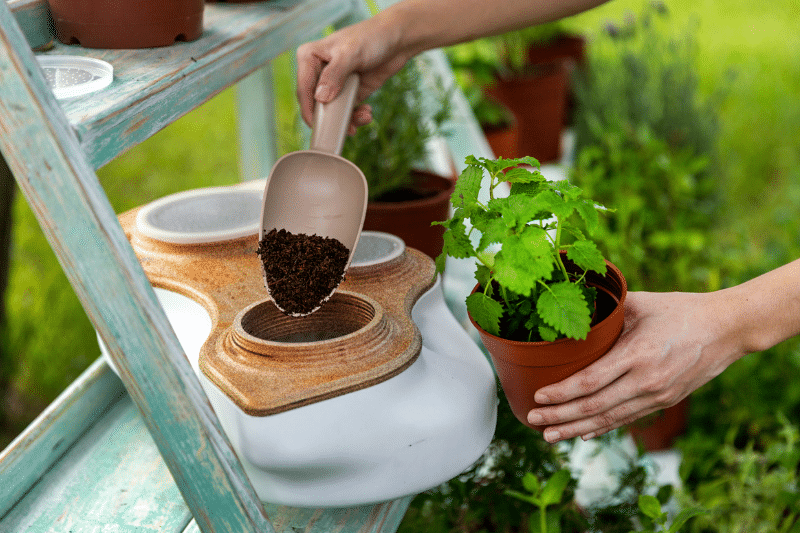
Is there a culture of recycling food waste in Taiwan?
The awareness is rising, for sure, but it is always very difficult to deal with the food waste problem. Especially in Asia, because most of our food is cooked. Food is cooked with oil or meat, which is very difficult and tricky to reuse or recycle.
In Taiwan, at first, we separated food waste into raw and cooked food waste. So, the raw food waste, of course can be recycled, by, for instance, our company. We recycle raw food waste, so it can directly be used as compost. Cooked food waste will usually end up in a landfill or incinerator. So recently, of course, some local governments in Taiwan started to build disposal plants to turn cooked food waste into bioenergy. There’s still a long way to go to solve the problem, but hopefully we are on the right path.
Taiwan has excellent recycling programmes in place but is falling behind on food waste management, what is your opinion on how to tackle this?
One of the most important things is raising awareness. I would also say individuals can do a lot more. We cannot expect the government to do everything. From our end, we always say that the most important way to reduce food waste is to basically eat all the food you order or prepare. That is always the most efficient way.

On the individual level, do you think that there is push back in terms of managing food waste or composting?
We try our best to design our products to be very user friendly. I have to emphasise that the Biovessel product works without any electricity use. Many composters on the market use electricity. For us, we are learning from nature- how does nature turn food waste into fertiliser? What we are trying to do is to speed up the process through our design. That is the goal. We want to bring nature back to our lifestyle, not only to deal with the problem itself, but to provide a sustainable living style. That is also a very important goal for us.
For us, nature is always the most beautiful. All our designs are not only inspired by nature, but actually defined by nature. We fed biology experiment data to generate the form of the Biovessel. It is actually not designed or defined by us. It is defined and developed by nature itself.
Can you speak more on your Nespresso – The Capsule Journey collaboration?
We had the privilege to be invited by Nespresso to Hong Kong in 2019 to collaborate with them on a pop-up store and exhibition called “The Capsule Journey.” We were asked to produce hundreds of plant pots made from their coffee grounds. I got to scale up the little capsules to enlarge the form of it to become a plant pot. We built a mould and experimented with the composition for the coffee grounds, and it was a huge success. Nespresso loved it and the visitors loved it. One of the most important things is that they are 100% organic. So, after the exhibition, the plant pots were donated to a local farm in Sham Shui Po to be used to fertilise the crops- a circular journey for the coffee.
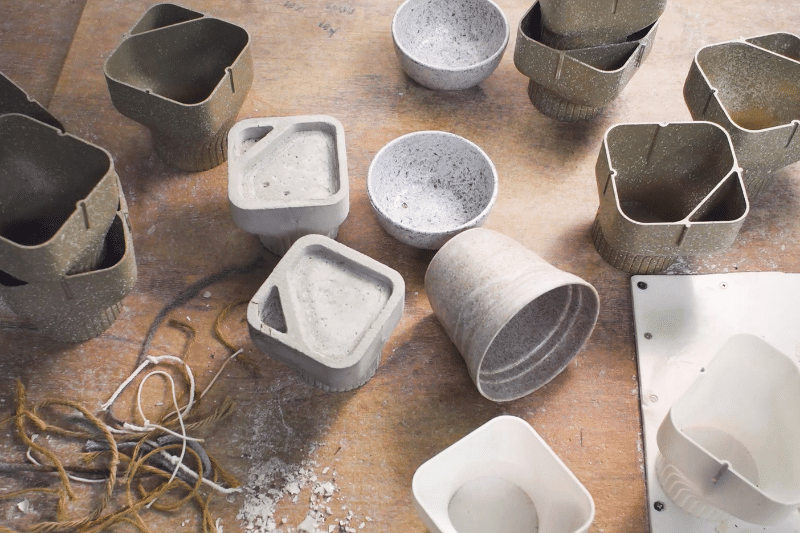
How do you apply sustainability values at your own workspace?
We recycle and try our best not to use disposable food packaging. Most importantly, we always eat our food up, because after all, that is the most effective way to reduce [waste].
Where do you conduct your research now?
We have a lab that is near the city centre. It’s quite tiny. Recently, we have been doing some materials experiments that we couldn’t do in our own studio space. I have to work with several factories to cast the compositions. Every day we are working between the factories and the recycling plants in our own studio- very mobile.
What project are you currently working on?
Last December, we won a competition invited by Audi to build a sustainable mobile showroom for them. The project is called the Symbiotic Rhapsody. We imagined a futuristic creature, monitoring and responding to the environment. It adapts to the Audi event to launch a car this summer. Also, it is immersed with future [artificial intelligence] (AI) and [augmented and virtual reality] (AR and VR) technology. Most importantly, it restores nature, because we believe the sustainable future of mobility is to actively restore nature. It is scheduled to finish and launch this summer and we are developing the design and details. Hopefully, it will draw attention to raise awareness of living in a sustainable future.
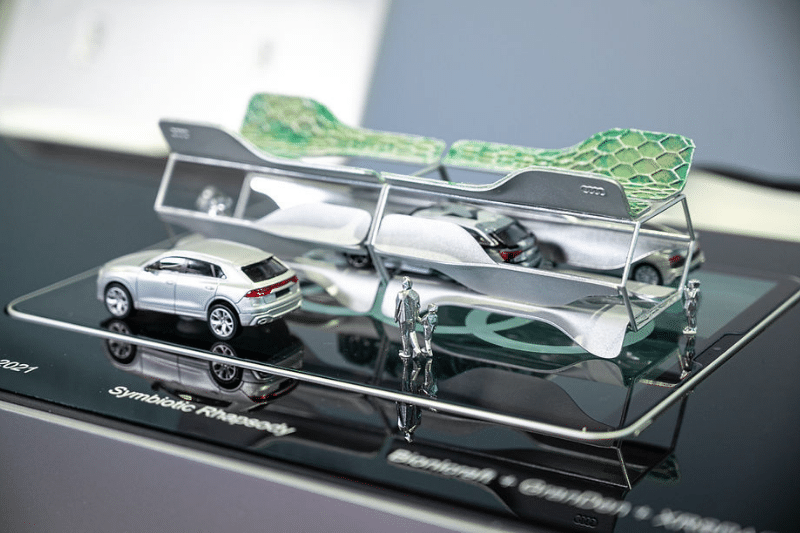
How can consumers purchase your products?
We have Biovessels and Alphapots available on our website, on Amazon, and on several online stores across Northern America and Europe. You can easily buy them online.
What are your future plans for Bionicraft?
To just keep working on what we are doing, and hopefully, as I always mention, raise awareness for sustainable living.
Related Articles
6 Best Zero Waste Products To Live A Waste-Free Lifestyle
This AI System Could Be The Solution To Cutting Down on Food Waste
Your Guide to AgriTech in Taiwan
